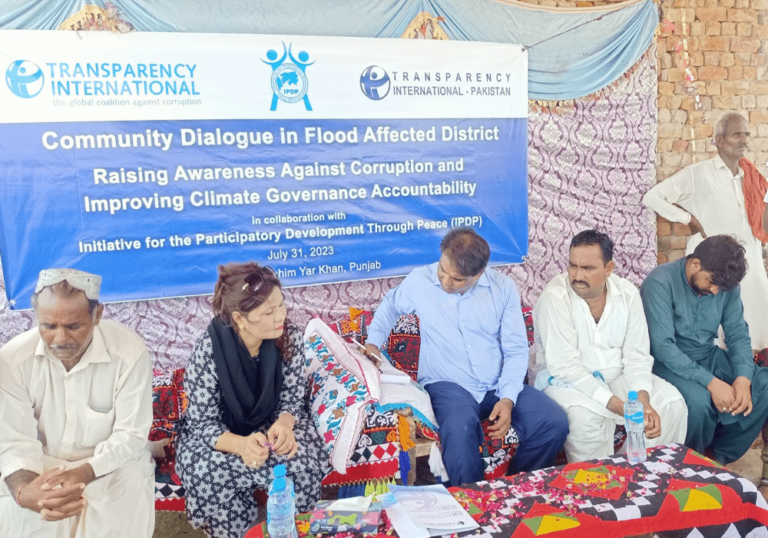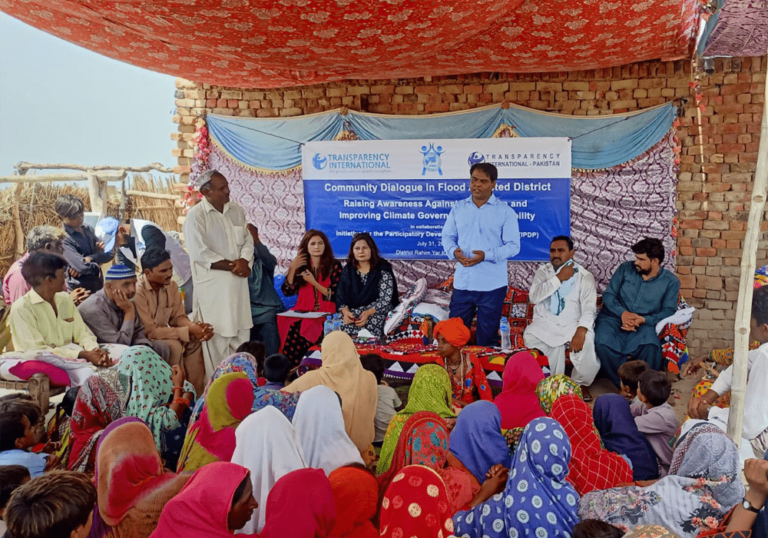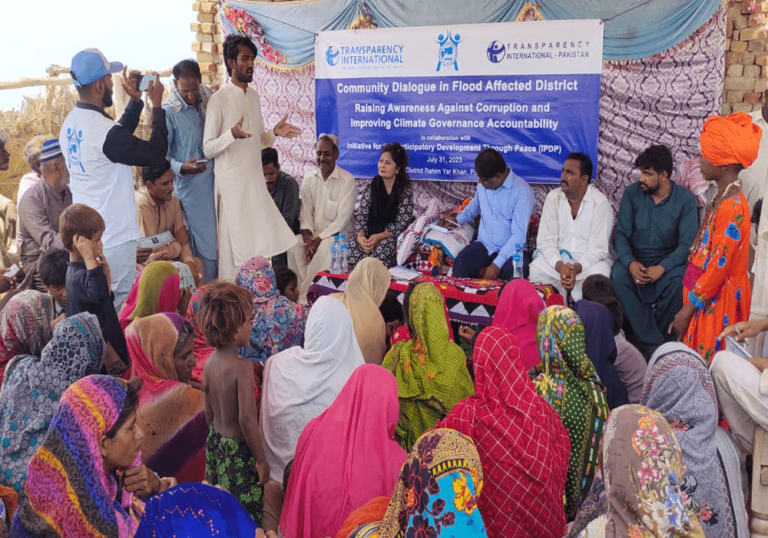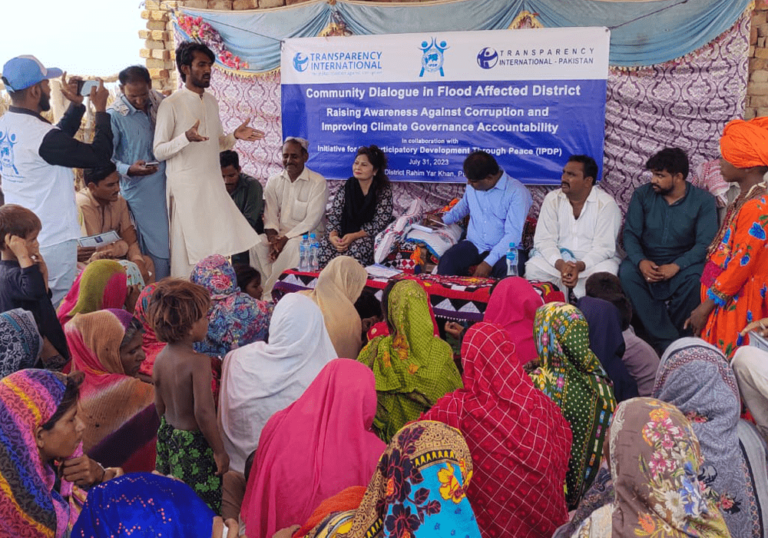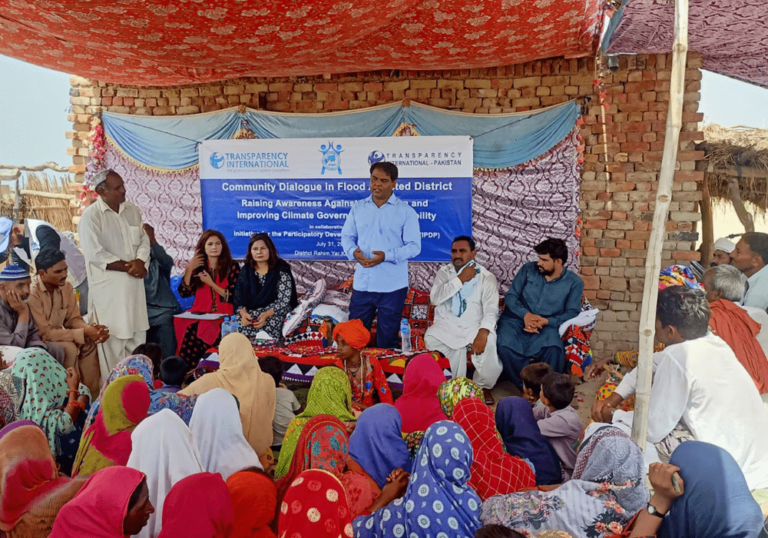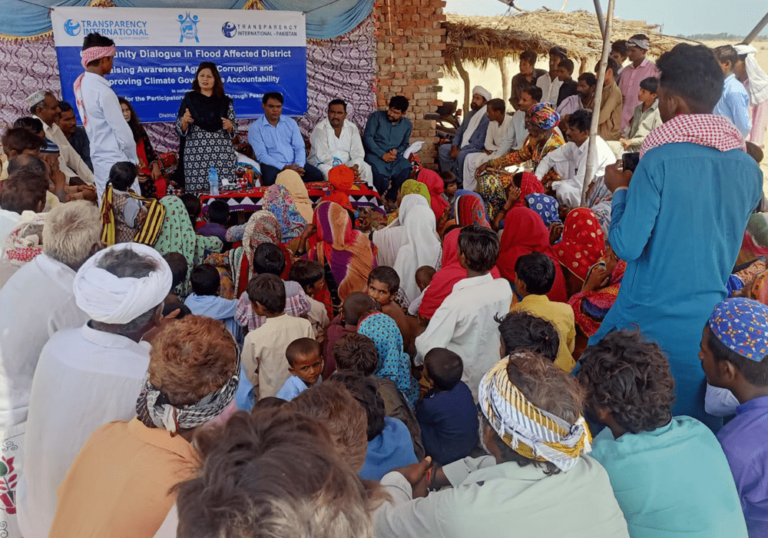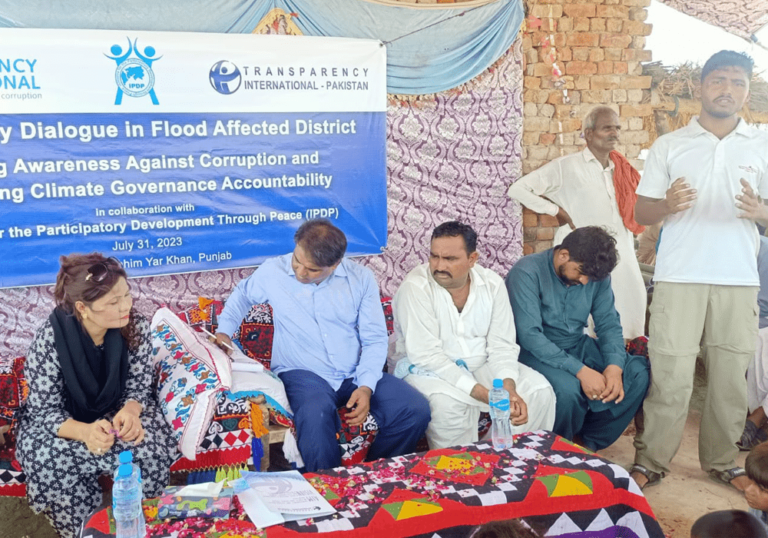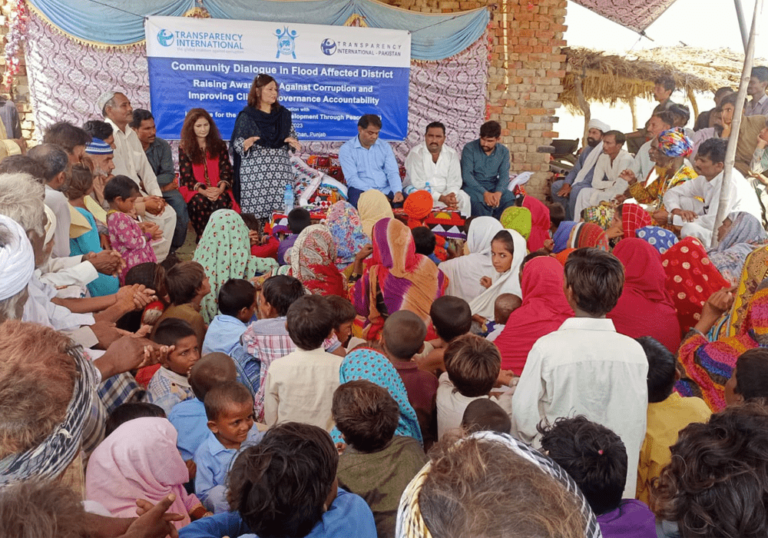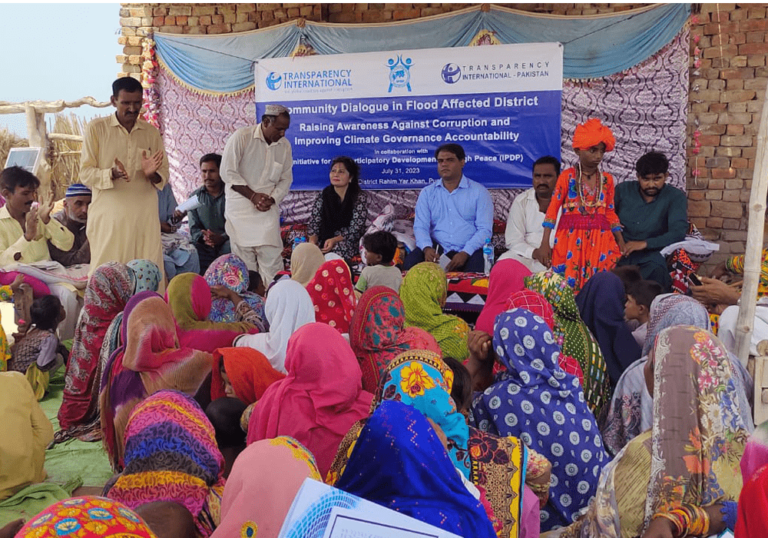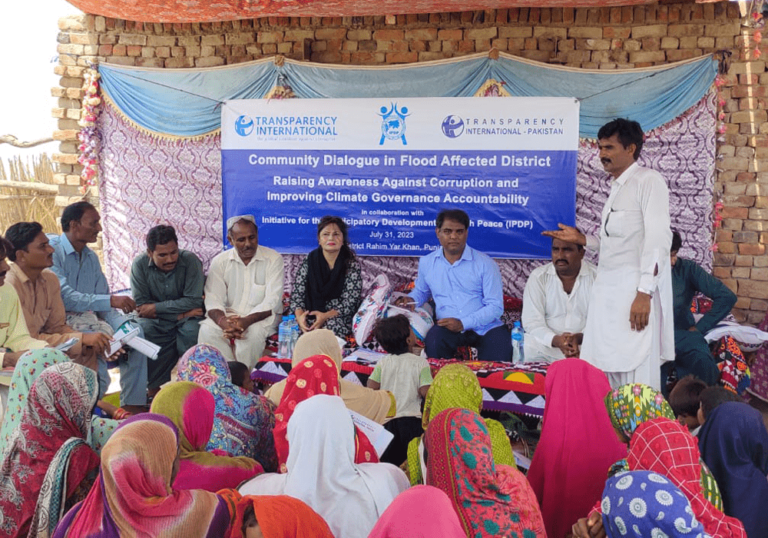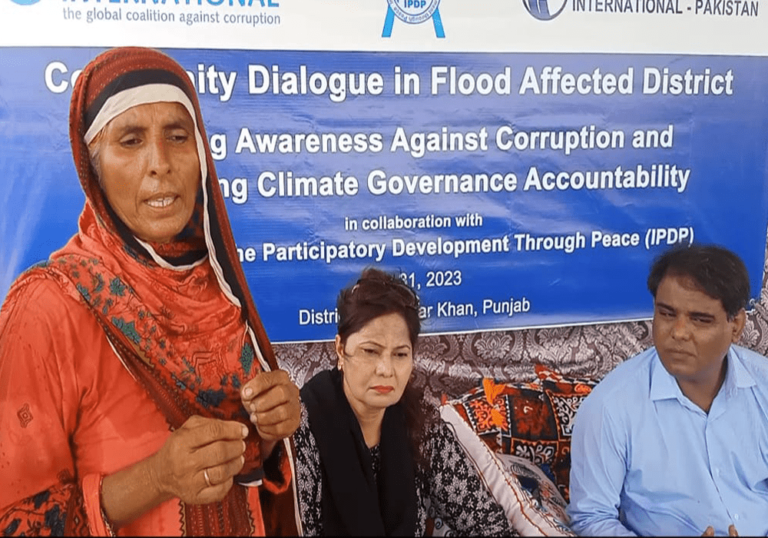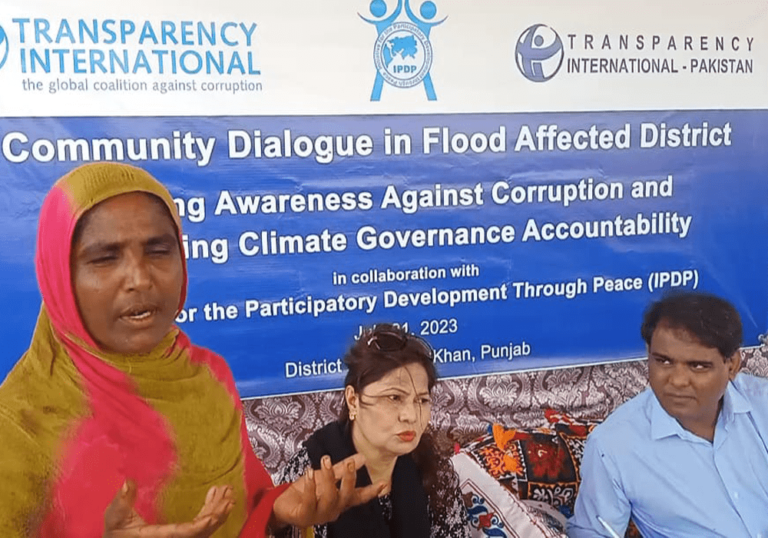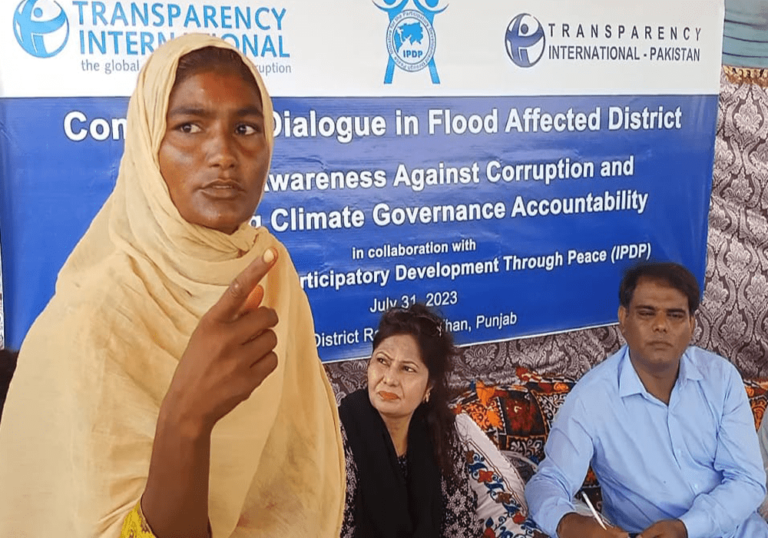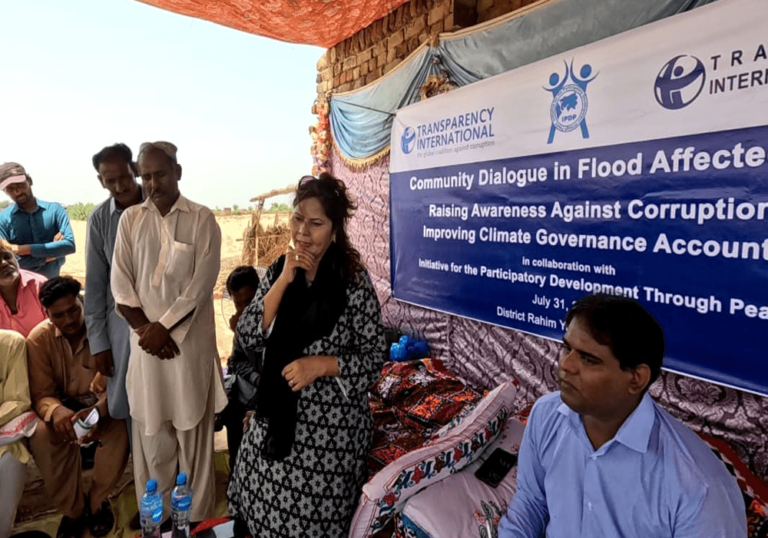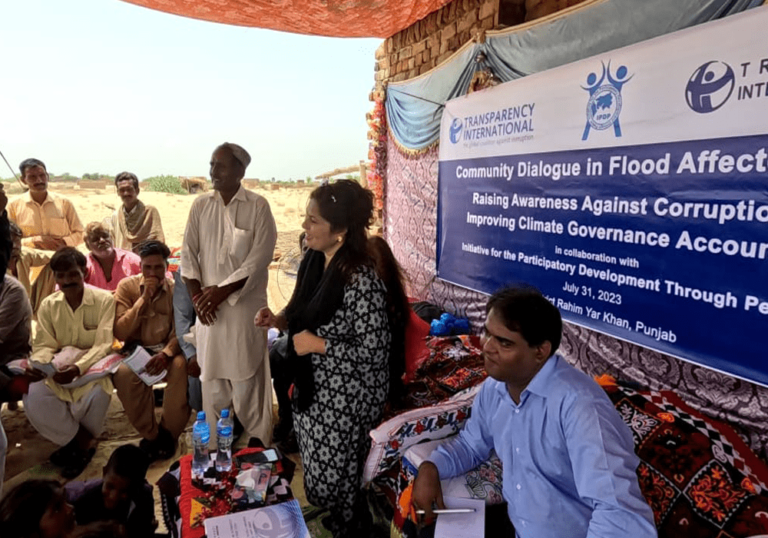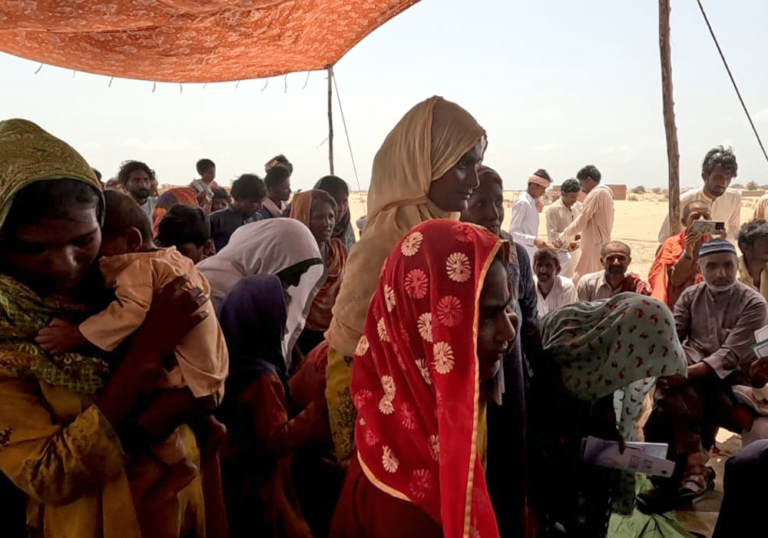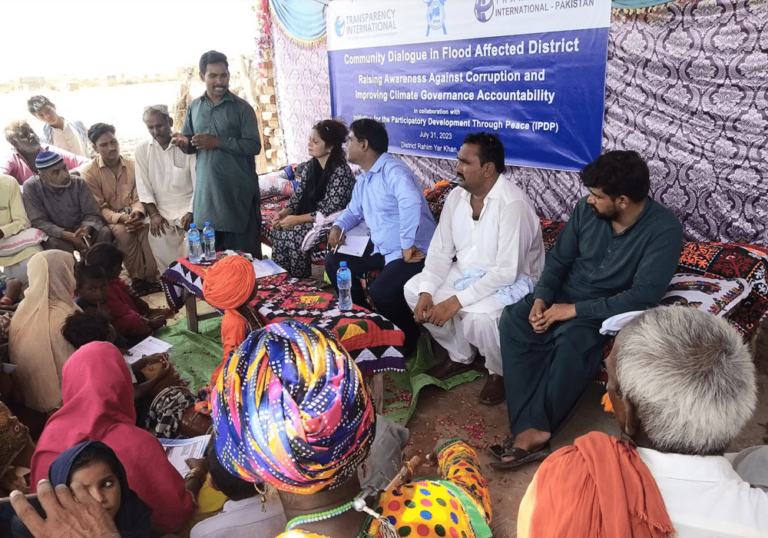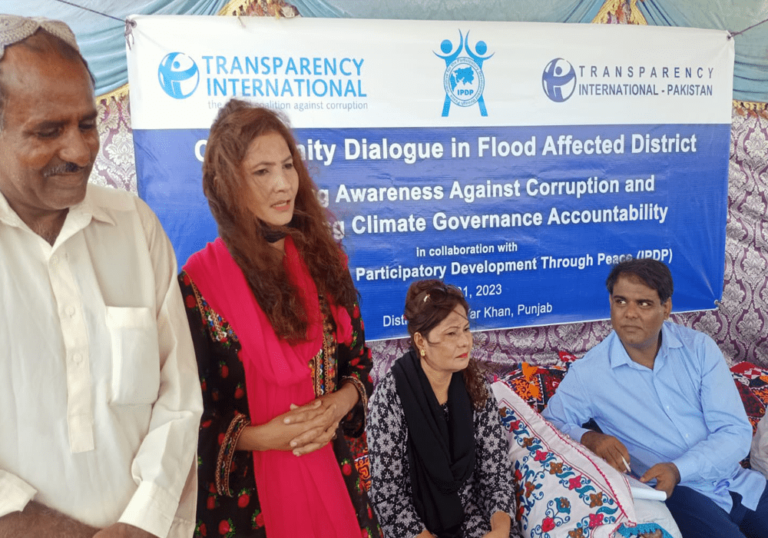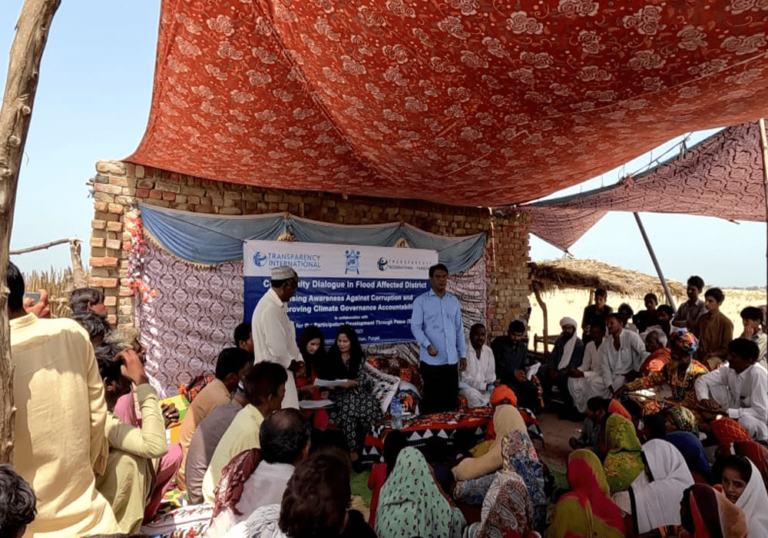- Home
- Community Dialogue in Flood Affected District: Raising Awareness Against Corruption and Improving Climate Governance Accountability
Community Dialogue in Flood Affected District: Raising Awareness Against Corruption and Improving Climate Governance Accountability
Community Dialogue in Flood Affected District: Raising Awareness Against Corruption and Improving Climate Governance Accountability
Venue: Basti Moosy Wala, District Rahim Yar Khan, Punjab
Day & Date: Monday, 31st July 2023
Transparency Intentional Pakistan organized a Community Dialogue in flood affected district 2022 to raise awareness against corruption among the marginalized communities to enhance citizens participation in climate decision-making and advocate for improved advocate for improved climate governance accountability. The open dialogue took place on 31st July 2023 at Basti Moosy Wala, flood affected area of District Rahim Yar Khan, Punjab. Around 76 participants belonging to different communities attended the dialogue
The event formally began with the faith prayers of Hinduism and Islam, a round of introduction was held after which Ms. Rukhsana Mubarak Executive Director Initiative for the Participatory Development Through Peace (IPDP) Rahim Yar Khan welcomed the community representatives & participants and shared the objectives of the Community Dialogue. She emphasized that the aim is to aware the marginalized communities about the tools they can use to raise voice against corruption in climate action and.
Moving on, Mr. Toufique Wassan, Project Coordinator, Tl Pakistan discussed Transparency International Pakistan work to reduce corruption in the country and advocate for improvement in the governance structure. He shared the importance of transparent climate governance to mitigate and adapt with upcoming climate threats.
He said corruption is the root cause which is affecting the transparent public service delivery at grass root level. Under the Climate Governance and Integrity Programme (CGIP), TI Pakistan aims to organize community dialogues to know from the communities that how corruption is affecting the public service delivery and their vulnerability.
He said that it is important to educate the local communities on climate change mitigation, adaptation, resilience, and social accountability tools to enhance citizens participation in climate decision making, and empower them with the skills so they can identify and report environmental corruption.
Mr. Wassan also discussed the Punjab Climate Change Policy 2017. He said that various reforms are to be taken under this policy to mitigate climate change and prevent from the upcoming climate disasters, but this will be effective only through transparent and corruption free utilization of funds.
He invited participants to share their experiences during 2022 floods which caused heavy damages, injuries, agricultural and livestock loses and if they had received any incentives from federal or provincial government.
Mrs Hajra, a community participant from Basti Moosy Wala said during floods in 2022, she lost her 2 cows, which were the only source of income for her family. She said that the administration officials visited her village and promised for the provision of compensation but she has not received a single penny from them yet.
Another community participant, Mrs. Moomal Bibi shared that during the floods, her house was partially damaged and that caused the injury of her husband who was the only bread-winner for her and their children. He used to serve in the agricultural land of local landlord but at this time she is working herself to feed her children and husband.
Mr. Sajan Nath, another community representative said that they are extremely vulnerable as their area is flooded as well as drought zone. He said that during floods their crops were completely vanished and most of the houses were partially damaged. Government officials only promised to compensate but as of today they have not received anything from them. He said we are living in a miserable condition and local leaders are coming to us only at the time of elections. He said that he has witnessed drought situation as well, at that time they were unable to feed their children and livestock. He shared that most of the community members sale their animals on half of the market price which was the only option they had at that time.
Another participant Mr. Manoj Kumar shared that due to corruption, funds allocated for their area were not utilized on local development. They have no roads, schools and hospitals and in this modern era women are walking in the desert area more than 2 miles every day to get drinking water. They have requested local leadership for water supply schemes but no one is addressing their needs.
Afterwards, community was informed about the valuable service of free legal advice provided by Transparency International Pakistan through its flagship program Advocacy and Legal Advice Center (ALAC). The citizens were made aware that ALAC acts as a dedicated resource for victims and witnesses of corruption, offering them essential guidance and support. This initiative highlights TI Pakistan’s strong commitment to aiding those directly impacted by environmental corrupt practices and ensuring that their concerns are acknowledged and addressed.
Community members were also made aware of free legal advice camps arranged by TI Pakistan at the grassroots level, where victims and witnesses of corruption are provided free legal advice at their doorstep. Additionally, citizens were encouraged to report incidents involving corruption in climate financing or mismanagement in projects related to climate. By promoting the reporting of such corrupt practices, TI Pakistan aims to raise awareness about the importance of transparency and accountability in climate-related initiatives.
The community was also thoroughly informed about the Right to Information laws through which they can hold government accountable by filling RTI requests and demand public information about utilization of floods aid.
Participants were provided a detailed session on RTI laws in Punjab. Mr. Toufique Wassan explained RTI law as a social accountability tool which was enacted after the 18th Amendment to the Constitution in Pakistan in 2010. Mr. Wassan highlighted that RTI allows the citizens access to public information with reasonable restrictions. Terminologies such as applicant, public bodies, information, and information commission under this law were explained in detail to enhance capacity of the communities on the use of RTI as social accountability tool to improve climate governance at the local level.
He also explained RTI application procedure and explained the function and mandate of Information Commission, and how it will deal with a complaint. He said that community can demand to know about the spending of flood emergency funds or held them accountable for not providing them relief timely during floods, through seeking legal advice from TI Pakistan’ legal advice center.
A brief on accountability tools was also given to engage citizens in transparent decision making in their community.
At the end Ms. Farzana Mubarak Project Manager IPDP Rahim Yar Khan concluded the dialogue by thanking TI Pakistan and the participants from different villages, union councils for their participation.


